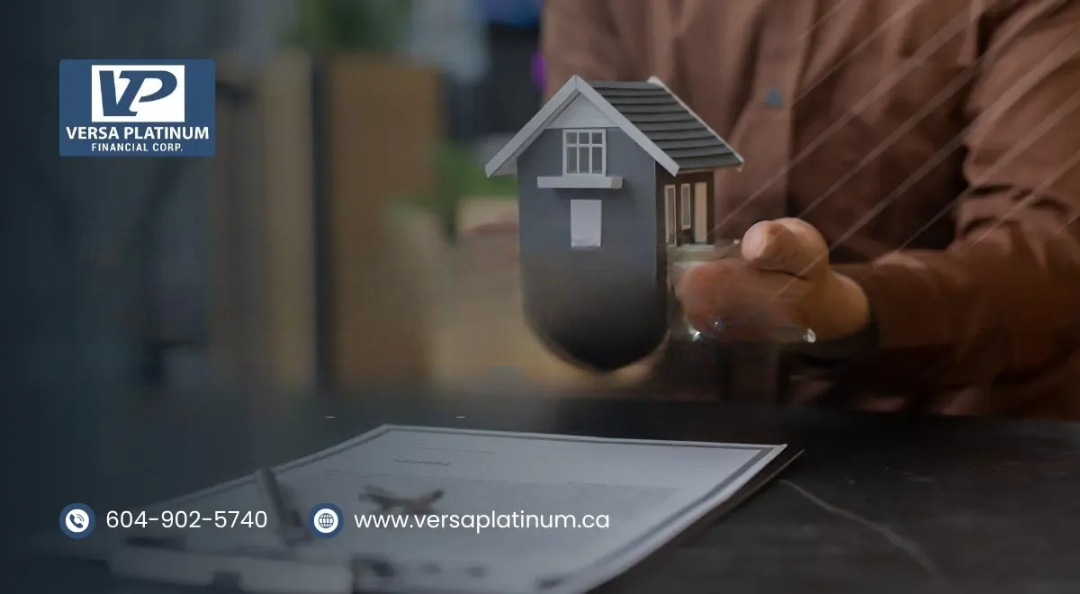When most people think about getting a mortgage, they imagine borrowing money from a bank or credit union. But banks aren’t the only option. Some people get their mortgage from a private lender instead.
A private mortgage can be helpful if the bank says “no” or if you need money quickly. But it also has some downsides. In this guide, we’ll explain what a private mortgage is, why people use it, the good and the bad sides, and how to use it wisely.
What Is a Private Mortgage?
A private mortgage is a home loan that comes from a person or business that is not a bank, credit union, or government lender.
Private lenders can be:
- An individual investor
- A group of investors
- A Mortgage Investment Corporation (MIC)
- A company that gives out private loans
The idea is simple — you borrow money to buy or refinance a home, and you pay it back with interest. The difference is that a private lender is usually more flexible than a bank, but they often charge higher interest rates.
How Does a Private Mortgage Work?
The process is similar to a bank loan, but the rules are usually less strict:
- You apply – Often through a mortgage broker.
- The lender checks the property first – They care more about the home’s value and your equity than your credit score.
- They approve the loan – You sign an agreement with the interest rate, payment plan, and term.
- You make payments – These could be monthly or sometimes interest-only until the loan ends.
Private mortgages are usually short-term loans, often for 1 to 3 years. Many people use them until they can get a regular bank mortgage.
Why Do People Use a Private Mortgage?
People turn to private mortgages when:
- Their credit score is low.
- They are self-employed and can’t easily prove income.
- They need money quickly to close a deal.
- They have a unique property that banks avoid.
- They want to use their home’s equity to pay off other debts.
Benefits of a Private Mortgage
- Easier Approval – The lender focuses on the property value, not just your credit.
- Faster Process – Approval can take days, not weeks.
- Flexible Terms – You may get interest-only payments or other options.
- Short-Term Help – A good way to bridge the gap until you qualify for a bank loan.
- Can Help Rebuild Credit – Making payments on time can improve your financial profile.
Risks of a Private Mortgage
Private mortgages are not perfect. Some risks include:
- Higher Interest Rates – Often between 7% and 15% in Canada.
- Short Loan Terms – You’ll need to refinance or pay it off quickly.
- Extra Fees – Broker, lender, and legal fees can add up.
- Losing Your Home – If you don’t pay, the lender can take legal action.
Common Costs with a Private Mortgage
When you get a private mortgage, expect to pay for:
- Interest – Higher than bank mortgages.
- Lender Fees – Usually a set percentage of the loan.
- Broker Fees – Paid to the mortgage broker.
- Legal Fees – For preparing and reviewing the paperwork.
Because of these costs, private mortgages are usually best for short-term use.
Tips to Use a Private Mortgage Wisely
- Have an Exit Plan – Know how you’ll pay off or replace the loan before it ends.
- Compare Lenders – Shop around for the best rates and terms.
- Work with a Good Broker – They can connect you with trusted lenders.
- Ask About All Fees – Get a full breakdown before signing.
- Borrow Only What You Need – Keep payments manageable.
- Check the Lender’s Reputation – Make sure they are licensed and experienced.
Example of How It Works
Imagine you’re self-employed with a credit score of 580. You find your dream home, but the bank says no.
Your broker finds a private lender willing to give you a 1-year mortgage at 10% interest. You make interest-only payments for a year while working to improve your credit. After that, you switch to a regular bank mortgage with a lower interest rate.
In this case, the private mortgage acted as a temporary solution.
Who Should Consider a Private Mortgage?
A private mortgage might be right for you if:
- You can’t get approved by a bank right now.
- You have at least 20–35% equity in the property.
- You can pay off or refinance the loan within a few years.
- You understand the risks and extra costs.
It’s probably not a good choice if you’re looking for a long-term, low-cost mortgage.
Final Thoughts
A private mortgage can be a great tool when traditional lenders won’t approve you. It’s faster, more flexible, and can help you get or keep a property when you need it most.
But it comes with higher interest rates, short terms, and extra fees — so it should usually be a short-term fix, not a long-term solution.
Before you choose a private mortgage, understand all the costs, have a clear plan for paying it off, and work with professionals you can trust. If used wisely, it can help you bridge the gap until you qualify for a better loan.





Comments